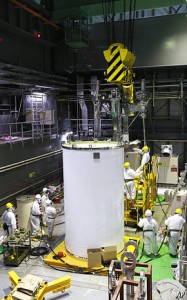After the Tohoku 2011 incident, “most of the public (were) broadly against restarting nuclear plants”. However, the absence of electricity from power plants increased the electricity cost and caused “a series of trade deficits”. Moreover, Tokyo Electric Power (TEPCO) provides many jobs for the economy and is the main source of electricity in Japan.
According to Friedman, the social responsibility of a business is to make profits while ‘conforming to the basic rules of society’. TEPCO having applied for a “safety check […] to restart two reactors”, follows Friedman’s definition of social responsibility as this would increase TEPCO’s profits. However, should the national economy really be the prime concern? It is unethical for TEPCO to continue using power plants when citizens nearby risk exposure to radiation. While TEPCO’s needs may be satisfied, the citizens’ interests are neglected. This goes against Freeman’s stakeholder theory whereby the needs of all stakeholders must be satisfied for a business to succeed.
Hence, TEPCO needs to provide electricity through sustainable methods. In the short run, TEPCO would face extreme changes to its company as it switches from power plants to green technology. In the long run, TEPCO would be viewed as a more ethical firm with good business practice.
Website and image sources:
http://www.tutor2u.net/business/strategy/business-ethics-introduction.html
